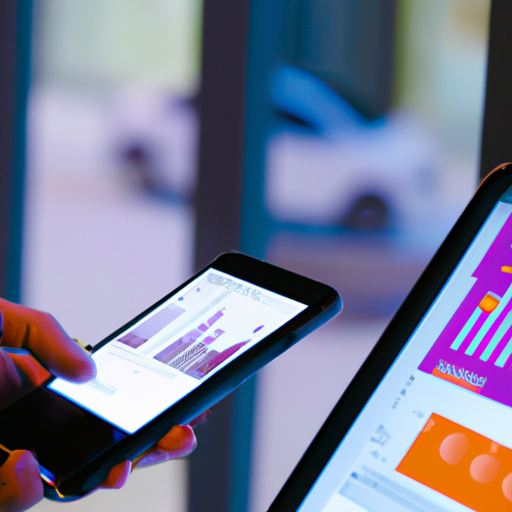
Benefits of Implementing a Data-Driven Marketing Strategy in the Hospitality Industry
In today’s digital age, data has become a valuable asset for businesses across various industries. The hospitality industry is no exception. Implementing a data-driven marketing strategy can provide numerous benefits for hotels, resorts, and other hospitality businesses. In this article, we will explore the advantages of adopting a data-driven approach and discuss some best practices and tools that can help hospitality businesses leverage their data effectively.
One of the key benefits of implementing a data-driven marketing strategy in the hospitality industry is the ability to gain valuable insights about customers. By analyzing data from various sources such as customer surveys, online reviews, and social media interactions, hotels can better understand their guests’ preferences, needs, and behaviors. This knowledge can then be used to tailor marketing campaigns and offers to specific customer segments, resulting in more personalized and targeted messaging.
Another advantage of a data-driven marketing strategy is the ability to measure and track the effectiveness of marketing efforts. By collecting and analyzing data on key performance indicators (KPIs) such as website traffic, conversion rates, and customer satisfaction scores, hotels can gain valuable insights into the success of their marketing campaigns. This data-driven approach allows businesses to make data-backed decisions and optimize their marketing efforts for better results.
Furthermore, a data-driven marketing strategy can help hospitality businesses improve customer retention and loyalty. By analyzing data on customer behavior and preferences, hotels can identify opportunities to enhance the guest experience and provide personalized offers and recommendations. For example, if a hotel identifies that a particular guest frequently orders room service, they can send targeted promotions for discounted room service options, thereby increasing the likelihood of repeat bookings and customer loyalty.
To implement a successful data-driven marketing strategy in the hospitality industry, businesses need to follow some best practices. Firstly, it is crucial to ensure data accuracy and quality. This involves regularly cleaning and validating data to eliminate duplicates, errors, and inconsistencies. Additionally, businesses should invest in data security measures to protect customer information and comply with data protection regulations.
Secondly, it is important to have a robust data analytics infrastructure in place. This includes tools and technologies that can collect, store, and analyze data effectively. There are numerous data analytics platforms available in the market that cater specifically to the hospitality industry. These platforms offer features such as data visualization, predictive analytics, and customer segmentation, enabling businesses to derive meaningful insights from their data.
Lastly, businesses should foster a data-driven culture within their organization. This involves educating employees about the importance of data and providing training on data analysis tools and techniques. By encouraging a data-driven mindset, businesses can empower their employees to make data-backed decisions and drive marketing initiatives that are aligned with business goals.
In conclusion, implementing a data-driven marketing strategy can bring significant benefits to the hospitality industry. By leveraging data insights, businesses can better understand their customers, measure the effectiveness of their marketing efforts, and improve customer retention and loyalty. To succeed in this endeavor, businesses should follow best practices such as ensuring data accuracy, investing in data analytics infrastructure, and fostering a data-driven culture. With the right tools and strategies in place, hospitality businesses can unlock the full potential of their data and gain a competitive edge in the market.
Top Tools for Analyzing and Utilizing Data in Hospitality Marketing

In today’s digital age, data has become a valuable asset for businesses across various industries, including the hospitality sector. With the abundance of information available, it is crucial for hospitality businesses to implement a data-driven marketing strategy to stay competitive and meet the evolving needs of their customers. To effectively analyze and utilize data, there are several top tools that can be employed in hospitality marketing.
One of the most popular tools for data analysis in the hospitality industry is Google Analytics. This powerful platform provides businesses with valuable insights into their website traffic, user behavior, and conversion rates. By tracking key metrics such as bounce rate, average session duration, and goal completions, businesses can gain a deeper understanding of their online performance and make data-driven decisions to optimize their marketing efforts.
Another essential tool for data analysis is social media analytics. Platforms like Facebook Insights, Twitter Analytics, and Instagram Insights provide businesses with valuable data on their social media performance. These tools allow businesses to track engagement metrics, such as likes, comments, and shares, as well as demographic information about their audience. By analyzing this data, businesses can tailor their social media content to better resonate with their target market and drive engagement.
In addition to data analysis tools, there are also tools available to help businesses utilize data effectively in their marketing campaigns. Customer relationship management (CRM) systems, such as Salesforce or HubSpot, are widely used in the hospitality industry to manage customer data and track interactions. These systems allow businesses to store and organize customer information, track customer preferences and behaviors, and create personalized marketing campaigns based on this data.
Email marketing platforms, such as Mailchimp or Constant Contact, are also valuable tools for utilizing data in hospitality marketing. These platforms enable businesses to segment their email lists based on customer data, such as demographics, purchase history, or engagement level. By sending targeted and personalized emails to specific customer segments, businesses can increase open rates, click-through rates, and ultimately, conversions.
Furthermore, marketing automation tools can greatly enhance a hospitality business’s data-driven marketing efforts. Platforms like Marketo or Pardot allow businesses to automate repetitive marketing tasks, such as email campaigns or social media posts, based on predefined triggers and customer behaviors. By automating these processes, businesses can save time and resources while delivering personalized and timely messages to their customers.
Lastly, it is important to mention the role of data visualization tools in hospitality marketing. Tools like Tableau or Google Data Studio enable businesses to create visually appealing and interactive dashboards to present data in a clear and understandable way. These tools allow businesses to visualize key metrics, trends, and patterns, making it easier to identify insights and make data-driven decisions.
In conclusion, implementing a data-driven marketing strategy is essential for hospitality businesses to stay competitive in today’s digital landscape. By utilizing top tools for data analysis and utilization, such as Google Analytics, social media analytics, CRM systems, email marketing platforms, marketing automation tools, and data visualization tools, businesses can gain valuable insights, personalize their marketing efforts, and ultimately, drive better results. So, if you’re in the hospitality industry, don’t miss out on the opportunity to leverage data and take your marketing strategy to the next level.
Best Practices for Successful Implementation of a Data-Driven Marketing Strategy in the Hospitality Industry
In today’s digital age, data has become a valuable asset for businesses across various industries, including the hospitality sector. With the abundance of customer information available, implementing a data-driven marketing strategy has become essential for hotels, resorts, and other hospitality establishments. By leveraging data, businesses can gain valuable insights into customer preferences, behavior, and trends, allowing them to tailor their marketing efforts and deliver personalized experiences. In this article, we will explore the best practices and tools for successfully implementing a data-driven marketing strategy in the hospitality industry.
One of the first steps in implementing a data-driven marketing strategy is to ensure that you have a robust data collection system in place. This involves capturing and storing relevant customer data from various touchpoints, such as website visits, social media interactions, and booking platforms. By integrating these data sources into a centralized system, you can create a comprehensive view of your customers and their preferences.
Once you have collected the necessary data, the next step is to analyze and interpret it effectively. This requires the use of data analytics tools that can help you uncover patterns, trends, and insights from the data. There are several tools available in the market, ranging from basic analytics platforms to more advanced solutions that offer predictive modeling and machine learning capabilities. It is important to choose a tool that aligns with your specific business needs and budget.
In addition to data analytics tools, implementing a customer relationship management (CRM) system can greatly enhance your data-driven marketing efforts. A CRM system allows you to track and manage customer interactions, preferences, and purchase history in a centralized database. By integrating your CRM system with your data analytics tools, you can gain a deeper understanding of your customers and create targeted marketing campaigns based on their preferences and behavior.
Another best practice for implementing a data-driven marketing strategy in the hospitality industry is to prioritize data security and privacy. With the increasing concerns around data breaches and privacy regulations, it is crucial to ensure that your data collection and storage practices comply with industry standards and regulations. Implementing robust security measures, such as encryption and access controls, can help protect your customer data and build trust with your audience.
Furthermore, it is important to regularly monitor and measure the effectiveness of your data-driven marketing efforts. This involves setting key performance indicators (KPIs) and tracking them over time. By analyzing the performance metrics, you can identify areas of improvement and make data-driven decisions to optimize your marketing campaigns. It is also important to regularly update and refine your data-driven marketing strategy based on the insights gained from the data.
In conclusion, implementing a data-driven marketing strategy is crucial for success in the hospitality industry. By leveraging customer data, businesses can gain valuable insights and deliver personalized experiences to their guests. To successfully implement a data-driven marketing strategy, it is important to have a robust data collection system, utilize data analytics tools, implement a CRM system, prioritize data security and privacy, and regularly monitor and measure the effectiveness of your marketing efforts. By following these best practices and utilizing the right tools, hospitality establishments can stay ahead of the competition and drive business growth.


